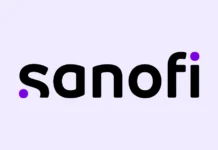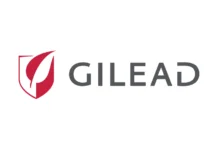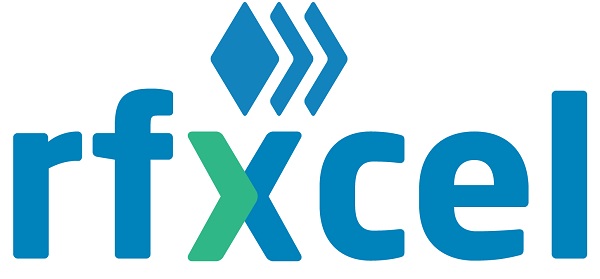Compliance is a serious issue for India’s pharmaceutical manufacturers, distributors, and retailers; due to the complicated nature of the pharmaceutical supply chain. Serialization requires pharmaceutical manufacturers to invest in new technology and adapt their current processes and systems.
Not only do companies need to accelerate their learning but find a solution provider who has a full-service implementation plan and support across all channels. This approach ensures companies are well-aware of the implementation roadmap, what to expect and how a partner will support them in every step of the serialization process.
With the race against time for pharmaceutical companies to comply with the EU Falsified Medicines Directive (EU FMD) and US Drug Supply Chain Security Act (US DSCSA) regulations, Indian pharmaceutical firms must start taking a hard look at the evolving international serialization requirements if they are to continue to export internationally.
Decoding Serialization Regulations
Serialization is the process by which products are marked with a standards-based unique identifier— typically a unique number or alphanumeric code—and is the enabling technology for systems and processes to enhance supply chain security.
 The regulatory push to secure the pharmaceutical supply chain comes as a result of rising drug-related criminal activities and supply chain inefficiencies. Efforts are aimed at addressing drug counterfeits, unauthorized parallel supply chains, improving supply chain visibility, difficulty in tracking returns/recalls and scarcity of data-driven tools for predicting patient behaviour.
The regulatory push to secure the pharmaceutical supply chain comes as a result of rising drug-related criminal activities and supply chain inefficiencies. Efforts are aimed at addressing drug counterfeits, unauthorized parallel supply chains, improving supply chain visibility, difficulty in tracking returns/recalls and scarcity of data-driven tools for predicting patient behaviour.
However, serialization of pharmaceuticals (i.e., applying the unique identifier to medication packaging) itself provides virtually no benefit to the supply chain. Rather, it is the use of that serialized data in a manner to efficiently realize the goals of the end-to-end system that enhances supply chain security. This complementary use of the serialized data is commonly referred to as “traceability” or “track-and-trace”.
Passed in 2013, the US DSCSA roadmap for end-to-end traceability is stretched across a period of 10 years, with deliverables outlined for all entities of the supply chain. In the US, lot-level traceability began in January 2015 under the act with package-level serialization to be completed by November 2018, following an extension granted by the FDA in June 2017. The entire supply chain is expected to be electronically integrated and all nodes of traceability to be established by November 2023.
The European Union (EU) has followed suit with a compliance requirement by enacting Falsified Medicines Directive (FMD). Unit-level serialization and dispenser authentication has been mandated by February 2019.
Due to these regulatory changes, Indian manufacturers are being urged to review at their serialization programmes with traceability as a core component of their strategy.
Serialization in Practice
Serialization process requires understanding of all products distributed, and a mechanism for identifying, and ensuring the good standing of all parties through the supply chain. In addition, systems and processes between downstream trading partners must be in place to receive, ship and dispense products.
Finally, the systems must be in place for the serialized data to be submitted to the relevant regulators and databases, from DAVA, to the FMD EMVO hub and the FDA in the US. Finding a serialization partner who follows the industry standards is critical to meet these requirements.
Implementing Serialization and Traceability
“Pharmaceutical manufacturers face obstacles to meet global compliance due to the complexity of regulations, system integration and cost. The rfxcel solution, rfxcel Traceability System (rTS), offers a complete track and trace solution with a full-service implementation plan, and hyper-care support across all channels of the integration process. Based on our experience, pharmaceutical companies can adopt these best practices to maximize their ROI.” says Vikash Pushpraj, an Executive of rfxcel.

Pharmaceutical companies should adopt a comprehensive approach to ensure success:
1: Assemble a multi-disciplinary team
Multi-disciplinary engagement is essential. Many organizations don’t understand all their business processes in sufficient detail to overlay serialization. It’s therefore vital that a multi-disciplinary team (MDT) is convened at the earliest opportunity to map the process flow of the business and establish a roadmap of how serialization can be applied across multiple organisational boundaries.
2: Understand the data implications of FMD
The barcodes required must include 4 lines of data; the unique identifier or Global Trade Item Number (GTIN), serial number, batch number and expiry date. These data sets often live in disparate systems within organizations. The master data – including GTINs – is fixed information that’s commonly stored in an enterprise resource planning (ERP) system.
Master data requires attention to ensure it’s clean and accurate when uploaded to the repositories. The processes required to generate serial numbers, transfer them to production, and ensure they’re used appropriately are complex. Serialisation software is therefore an essential requirement to help you maintain control of all this.
3: Choose the right software
There are numerous factors to consider when selecting software:
Quality
Serialization should not be divorced from the founding principle of Good Manufacturing Practice (GMP) – quality. GMP guidelines, as well as data integrity advice from regulators such as the UK MHRA, state that users of computer systems must always be in control. However, multi-tenant serialization solutions (where multiple independent entities share the same instance of a software solution) can sometimes impose software updates without prior dialogue, leaving users out of control. The potential impact on quality is significant.
 Data Validation
Data Validation
An effective solution will focus on both connectivity and data integrity. Companies should never assume that the data entering, or generated within, their systems is clean, tidy and accurate. Internal data checks are essential. Smart solution providers validate data flowing through a system – in rfxcel’s casemore than100 data validation checks incur on incoming records to ensure its integrity –essentially preventing bad data entering the EU hub.
Network connectivity
It’s not enough to ensure your own business is ready: your partners must be ready too. The most effective solution providers understand the varied connections you are going to have, then commit to connecting your entire partner network as standard. This ensures that data really flows end-to-end across the supply chain.
4: Choose the right partner
Finally, it’s important to find a vendor that can partner with you to design responsive solutions that go beyond technology. In addition, a partner should be a recognized provider with experience, credibility and evidence that shows it can implement effectively within tight time frames, a full-service implementation model, operating across a number of time zones to ensure that time zone issues don’t become your stumbling block.
Conclusion
Serialization and traceability are significant undertakings, but compliance to international regulations and understanding of supply chain best practice are vital to the continued success of the Indian pharmaceutical market. To succeed, pharmaceuticals companies must extend the boundaries of their enterprise. Meeting the EU FMD or US DSCSA requirements requires unprecedented agility, and collaborative capabilities.
Investing in a trusted partner, who understands all the nuances of the international landscape and has the relevant registrations, resources, technology and processes in place, can help you successfully navigate hitherto uncharted territory.
By choosing rfxcel [https://www.rfxcel.com/], we set you up for success in meeting the EU FMD and US DSCS regulations. Reach out to our India lead,
Vikash Pushpraj at india@rfxcel.com to find out how you can leverage our programs to ensure your supply chain meets international standards.
.






















